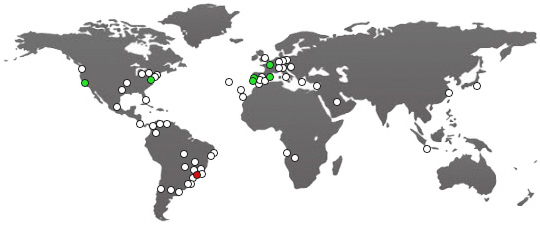Low Immunity
Effect of Aloe Vera Arborescens on Low Immunity
Aloe Vera Arborescens is widely known for its impact on the immune system and has been used for centuries as a natural tonic.
It has scientifically supported effects on immune modulation, especially when consumed raw or in traditional preparations (such as Father Romano Zago’s recipe).
1. Stimulates immune cell production and activity
It contains the polysaccharide acemannan, which:
-
Stimulates macrophages (defense cells that "digest" viruses, bacteria, and damaged cells)
-
Increases the production of cytokines (signaling molecules that activate other immune cells)
-
Promotes the activity of T-lymphocytes and NK (natural killer) cells, essential in fighting infections and abnormal cells
Result: The body reacts faster and more effectively against invaders.
2. Mild antiviral and antibacterial action
Some studies show that Aloe Vera Arborescens compounds have antimicrobial activity, especially against bacteria like Staphylococcus aureus and fungi like Candida.
It may also inhibit viral replication, although it does not replace medical treatments.
3. Rich in immune-supporting nutrients
It naturally contains:
-
Vitamins A, C, E, B1, B2, B12, and folic acid
-
Zinc, selenium, and antioxidant enzymes
These nutrients are essential for balanced immune function, helping correct low immunity linked to nutritional deficiencies.
4. Modulates rather than overstimulates
Unlike substances that “force” the immune system, Aloe Vera Arborescens is considered an immunomodulator — meaning it stimulates when needed but also helps regulate the immune response.
This is especially useful for people with chronic inflammation or mild autoimmune tendencies.
Important precautions
-
Do not use it alone to treat serious immune-related diseases.
-
Should not be combined with immunosuppressive therapy without medical supervision.
-
In some autoimmune conditions, it may enhance immune activity undesirably.







